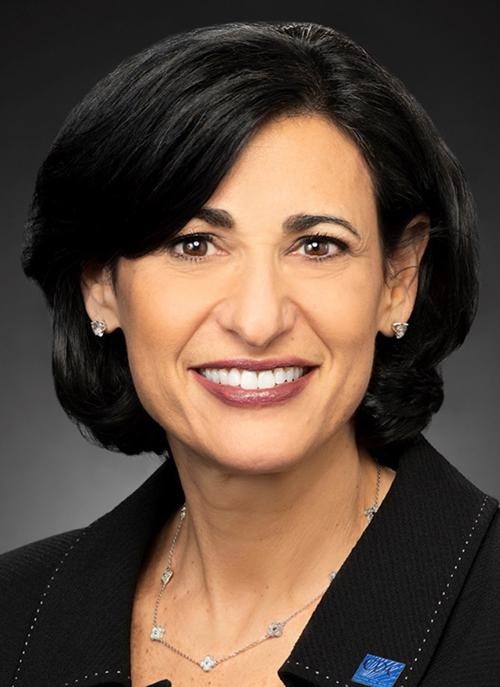Testing capacity has been boosted by inclusion of commercial laboratory companies and the fact that the virus spreads less easily than SARS-CoV-2
At the start of the SARS-CoV-2 pandemic, clinical laboratories were unprepared for unprecedented testing volumes. Fast forward to today, and the monkeypox outbreak has some clinical laboratory managers and pathologists wondering if they might again be faced with a surge in demand for monkeypox testing.
The good news is that so far the supply of tests appears adequate, especially compared to the early days of COVID-19.
Back in spring 2020, many clinical laboratories simply could not keep up with the overwhelming demand for COVID-19 tests. In “In New Hampshire, Cooperation Was Key to Handling Clinical Laboratory Testing Challenges Posed by the COVID-19 Outbreak,” Dark Daily reported how the state’s public health laboratory was not prepared for the surge in test requests.
By comparison, monkeypox testing capacity is currently in a far better position, said Rochelle Walensky, MD, Director of the federal Centers for Disease Control and Prevention (CDC), during a hearing before the US Senate’s Health, Education, Labor, and Pension (HELP) Committee on Sept. 14.
“We’ve always had more capacity than we have had tests coming in,” Walensky noted. “To date, we’ve used about 14% to 20% of our capacity.”

During a hearing before the Senate Health, Education, Labor, and Pensions Committee on the current state of monkeypox testing capacity in the US, Rochelle Walensky, MD (above), Director at the CDC said, “We worked through commercial labs to expand testing across the country and simultaneously [offered] outreach and education to providers, clinicians, patients, and public health.” At the moment, access to clinical laboratory testing for monkeypox appears stable, but that could change as demand grows. (Photo copyright: CDC.)
Capacity Sits at 80,000 Tests Per Week in the US
When the monkeypox outbreak began, US medical laboratories could run 6,000 tests per week. At the time, this was more than sufficient, according to a White House press briefing.
However, since then, demand for testing has increased across the country to 80,000 tests per week. As part of that effort, the CDC partnered with five commercial laboratories to expand access to testing, according to the federal Department of Health and Human Services (HHS), Dark Daily reported in August.
Those labs included:
Testing capacity also has kept up with demand thanks to biology. Monkeypox, which is in the same orthopoxvirus family of viruses as smallpox, has proven far less virulent than COVID-19, so fewer people are getting infected.
FDA Advises Against Monkeypox Saliva Test
Another boost to capacity in the future may come from new types of monkeypox tests.
Wired reported on Aug. 1 that Flow Health—a California company already distributing COVID-19 tests—has developed a monkeypox test that can detect the virus in saliva. This test would require patients to spit into a tube for a sample, and as such could be distributed for at-home use.
However, in a report released on July 15, the US Food and Drug Administration (FDA) advised providers to only take testing samples from lesions caused by the rash associated with monkeypox infection. The FDA stated that there is currently no clinical data to support the use of other monkeypox tests like Flow Health’s.
Monkeypox Testing Resources Scarce in Some Areas
At the moment, clinical laboratory testing capacity seems stable, however, roadblocks are appearing that may disrupt the availability of monkeypox tests for patients.
Although bringing on five commercial laboratories has increased US testing capacity, MedTech Dive reported on Aug. 10 that for some hospitals and laboratories, resources for monkeypox testing are scarce.
For example, Bellevue Hospital in New York City, which is part of New York University’s Langone Health network, has had trouble dedicating space and staff for monkeypox testing.
“Right now, there’s a lot of confusion in the community about where to get tested, where can people find treatment,” Robert Pitts, MD, an Infectious Diseases Specialist at Bellevue, told MedTech Dive. “There’s just no clear guidance because I think a lot of the different facilities and healthcare systems in New York are still trying to patch together pathways. … We’ve had to borrow space, borrow staff, which has been really, really challenging.”
During August, Bellevue took two primary care providers out of their normal clinical responsibilities to instead focus on monkeypox. And Pitts found himself dedicating four to five hours of his time to monkeypox-related issues, MedTech Dive reported.
“And so, I’m using my own time, because it’s a crisis, to respond to it,” he said.
The US healthcare system has been somewhat more efficient at getting monkeypox tests out to clinical laboratories than was the case with COVID-19. Moreover, new tests may be on the way. However, roadblocks exist that must be overcome to ensure monkeypox testing capability will meet growing demand.
–Ashley Croce
Related Information:
Senate HELP Committee Holds Hearing on Monkeypox Federal Response
Senate HELP Committee Holds Hearing on Monkeypox Federal Response
Medical Laboratories Respond to Monkeypox Outbreak Using CDC-Developed Diagnostic Test
As Monkeypox Cases Increase, Disease Experts Lament Lack of Testing Access


